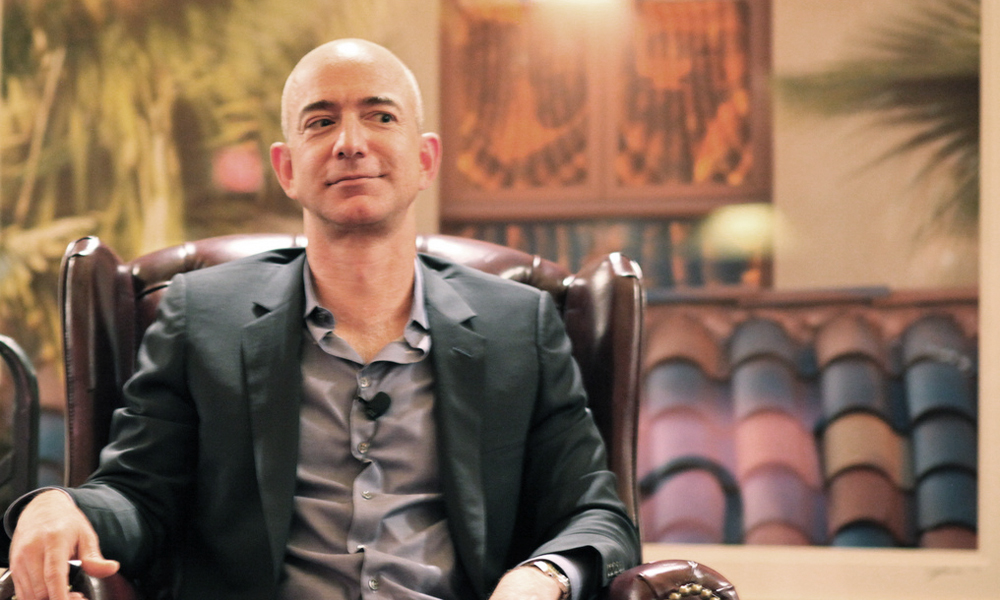
Inside a Smart Introduction
Jeff Bezos' letter to Washington Post employees contains a few lessons for how new CEOs can greet their staffs, especially in a crisis.
Last week’s news that Amazon.com founder Jeff Bezos bought the Washington Post left most observers speechless—and then very, very chatty. There’s been all manner of analysis of what the move means, from potential editorial stances to its impact on the book industry.
In last Thursday’s Social Media Roundup, AssociationsNow.com’s Chris Brandon took note of a discussion of the letter Bezos wrote to Post employees introducing himself. I’d like to explore that angle a little more deeply, because it’s a critical one for CEOs. Every leader is put in the position of establishing his or her leadership presence in a new place at least once, whether they climbed the ladder internally or found a new perch. And in this case, I think Bezos did a lot of things right with what he wrote. (Disclosure: The Post is my local paper, and I’ve written for it on occasion, so I have some feelings of investment in the move, though they’re more emotional than financial.)
Our touchstone will be readers, understanding what they care about…and working backwards from there.
Let’s take a look at a few things that worked in Bezos’ letter:
1. He acknowledged the cloud of uncertainty right away. The first sentence of Bezos’ letter is this: “You’ll have heard the news, and many of you will greet it with a degree of apprehension.” The newspaper industry has had a terrible decade, losing ad revenue by the tanker-load, cutting publication frequency, and shedding staff. So the arrival of a new owner, in itself, is no cause for celebration—it leaves newsroom workers wondering what the new boss’ philosophy is and whether their jobs are considered valuable within it. Before that first hello, a smart CEO ought to know what’s keeping staff up at night. Finances? Membership numbers? The next meeting? Regardless, your arrival is cause for concern—what does your presence mean to how they’ll do their work? (That’s not a rhetorical question. Have an answer.)
2. He was careful what he bragged about. Bezos is arguably the greatest living innovator in the American technology business, but you won’t find the word “innovate” anywhere in his letter. As newsrooms have struggled financially, they’ve experienced all manner of would-be white knights claiming that some digital innovation or other would lead to profitability—until the plan doesn’t work out and layoffs ensue. To the average daily newspaper reporter in 2013, the arrival of a self-declared innovator is about as enchanting as a sewage backup.
Instead, Bezos focused on a theme that has a lot more currency in a newsroom: values. Though he cautioned the staff that the Post would have to “experiment” and “invent,” he stressed that it would be done in the context of respecting the paper’s mission to report with intelligence and integrity. “Our touchstone will be readers, understanding what they care about—government, local leaders, restaurant openings, scout troops, businesses, charities, governors, sports—and working backwards from there,” Bezos wrote. An incoming association CEO could do worse than to make a similar statement prioritizing members.
3. He told a good joke. Daily newspaper journalists write for a “family paper,” but they tend to be a salty bunch. So to my mind, the smartest thing Bezos wrote in his letter is this: “While I hope no one ever threatens to put one of my body parts through a wringer, if they do, thanks to [former Post publisher] Mrs. [Katharine] Graham’s example, I’ll be ready.” As everybody at the Post knows, Bezos is referring to Watergate-era Attorney General John Mitchell’s threat to—well, read for yourself. The inside gag does double duty for Bezos: Not only does it help soften any feelings that he’s a carpetbagger, it reiterates his statement that he shares the newspaper’s values, and that if he’s going to mess with anything, it won’t be that. Every organization has its folkways and cultural tics, and it’s part of your job as a newcomer to know them.
All of which only goes so far: A letter is just a letter, after all, and it may not wholly reflect Bezos’ intentions as an owner. And I’m sure some reporters wished he’d written as much about “resources” as he did “values”—or visited D.C. himself to deliver this message in person. But it’s a strong opening. A little while back I wrote about how getting to know your members is critical for new association executives, and it’s equally true for your employees.
What’s been your strategy for introducing yourself to staff? Share your experiences in the comments.
(photo by Steve Jurvetson/Flickr)






Comments